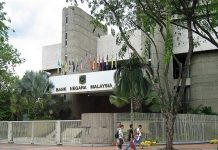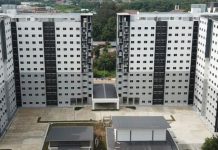The Singapore Business Federation (SBF) has revealed a more positive outlook for the Singapore economy in its National Business Survey (NBS) 2024 – Annual Business Sentiments Edition.
According to the survey, 40% of businesses are satisfied with the current business climate—a 10%-point increase since mid-2024. More businesses also expect the economy to improve (26%) compared to worsen (22%) in the next 12 months.
Conducted from 11 October to 11 November 2024, the survey gathered responses from 519 businesses across all key industries, comprising 83% SMEs and 17% large companies.
The data and insights from the survey seek to inform the Singapore Budget 2025 recommendations to strengthen and build globally competitive and sustainable businesses.
Despite rising business costs and uncertainty, manpower costs continued to be the top challenge for businesses (66%), while customer demand uncertainty rose sharply from 30% in 2023 to 45% in 2024, becoming the second top challenge.
Rental costs also increased, rising from 36% in 2023 to 43% in 2024. Sectors such as hotels, restaurants, and accommodations (80%), retail trade (75%), and wholesale trade (59%) were most impacted by uncertainty in customer demand.
Despite these challenges, one in two businesses (57%) managed to maintain or increase profitability over the past year. However, 43% reported a decline in profitability with an average decrease of 27.5%.
To mitigate cost pressures, 51% of businesses implemented cost-saving measures, 41% raised the prices of their products or services, and 30% improved their inventory management.
Reflecting resilience, 54% of businesses indicated they do not face liquidity issues. Among the 25% experiencing severe to moderate credit crunch, 40% reported insufficient funds to sustain operations for the next 3 to 6 months.
In response, businesses are reducing non-essential outflows, assessing customers’ credit risks, and enhancing collections. Furthermore, 70% of businesses are seeking government support programmes to help manage their financing needs.
More companies are investing in their future, with 36% (a 7%-point increase) focusing on staff training, 37% (a 5%-point increase) on new technologies and digitalisation, and 26% (a 5%-point increase) on new investments over the next 12 months.
With limited local manpower and a low unemployment rate, a complementary foreign workforce is essential for sustaining economic competitiveness. The majority of businesses (59%) believe their local employees view foreign workers positively, with only 7% perceiving them as competitive.
However, the proportion of businesses rating Singapore as a highly attractive global talent hub decreased from 43% in the past 12 months to 41% in the next 12 months. This decline was more pronounced among large companies, dropping from 55% to 47%.
To foster integration between local and foreign workforces, 42% of businesses rely on cross-functional teams. However, only one in five companies have Diversity, Equity, and Inclusion (DEI) policies or engage in community or cultural integration activities.
Companies expressed strong appreciation for Budget 2024 measures to help manage rising costs, build strategic capabilities, and enhance sustainability. The top five initiatives were the Corporate Income Tax rebate (88%), the SkillsFuture Level Up programme (78%), the extension of SkillsFuture Enterprise Credit (73%), the enhancement of the Progressive Wage Credit Scheme (70%), and the increase of salary support cap for Career Conversion Programmes (CCPs) (67%).
In light of the challenges ahead, businesses are seeking government support for managing financing needs (35%), human capital development (34%), and digitalisation for business transformation (33%). Their top three wishes for Budget 2025 include schemes to address cost pressures (64%), attract and retain local workforce (43%), and resolve foreign manpower issues (41%).
Drawing from the survey findings and engagement with the business community, SBF will release the SBF-PwC Budget Recommendations on 9 January 2025.
Kok Ping Soon, CEO of SBF, commented, “As we move into 2025, it is encouraging to see a growth in optimism on business outlook, reflecting our businesses’ resilience, adaptability, and preparedness for the future by investing in capability building.
“This survey, conducted before the US Presidential election results, shows that many companies are already concerned with the uncertainty in demand arising from geopolitical forces. External factors such as increased trade tensions, potential tariff wars, and spillovers from regional conflicts are likely to dominate business concerns in the coming year.
“While rising business costs are a perennial concern, we are heartened that more companies are prepared to invest in people, technology, and new businesses. Given our manpower constraints, we need to increase Singapore’s absorptive capacity for a complementary foreign workforce to maintain our attractiveness as a global talent hub.
“With only one in five businesses having DEI policies and providing community or cultural integration initiatives, more work is needed in this area to strengthen workforce collaboration and cohesion.”















